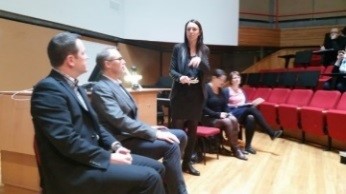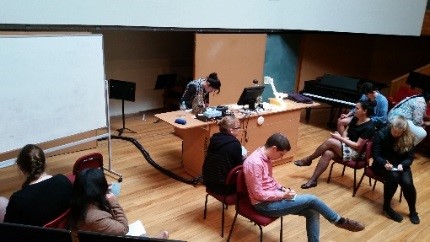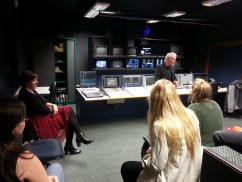
|
Teaching The Practice of Politics Teaching The Practice of Politics |
Welcome to Teaching The Practice of Politics!
Students, parents, employers and governments are increasingly interested in employability: ‘a degree by itself is not enough to get a student a job, and it certainly isn’t enough to ensure they get the best job that enables them to practise what they have learnt at university both effectively and ethically.’* However employability was not on the agenda when most of the academics now teaching at universities were undergraduates themselves so it is hard to imagine how to teach in a practical or applied way.
What this site offers: a library of teaching resources on the practice of politics and international relations This resource site is designed to help. It provides a library full of teaching resources for enrolled users for a course called The Practice of Politics which can be copied or adapted for teaching a similar course or just one part of it. These include power-point slides, workshop handouts, workshop preparation, group exercises, assessment details; sample syllabi; teaching tips; and resources including adverts for jobs in politics and IR, links to media and practitioner articles and videos and relevant academic literature.
'An amazing resource...will change political science much for the better - it will finally allow us to start to bridge the practitioner/academic gap' (Dr. Lindsey Te Ata o Tu MacDonald, University of Canterbury).
‘A phenomenal pedagogical support service to a community of scholars, practitioners and students around the world.’ (Associate Professor Alex Marland, Newfoundland University, Canada)
‘The world of PoliSci teaching owes you a tremendous debt for curating this fabulous collection…The teaching resources are FANTASTIC. .’ (Associate Professor Laura J Sheppard, UNSW, Australia)
Use it for one off workshop, part of a course, or beyond politics Users can take and adapt all the resources to create their own version of The Practice of Politics and IR course. Or they can take just bits of it to integrate within their own traditional courses, at graduate or UG level, or offer as non-assessed workshops. Or academics interested in practical or applied teaching outside the discipline of politics and IR can adapt the core ideas can easily be adapted to suit a course such as The Practice of Law, The Practice of History, or The Practice of Business.
'The practice of politics could so easily be “the practice of experiential internship” (Associate Professor Martin Tolich, Otago University, New Zealand)
‘Made me think about things I might do in at least two of my writing courses’ (Dr Stephen Turner, Auckland University, New Zealand) * Cleland, Alison and Jennifer Lees-Marshment (2015) 'Applied academic teaching and learning: How and why you should introduce real world teaching' in Insights into Practice: Teaching Cases for student engagement and achievement edited by Cathy Gunn and Liz Ramsay, CLeaR
What the Practice of Politics coversThe Practice of Politics aims to develop the skills and knowledge that students need to practise politics and IR effectively, with four key parts.
The aim is to help students develop the insight, skills and knowledge they will need to work and succeed as practitioners in politics and IR. The general approach to teaching is based on active learning via workshops and authentic applied assessment, which includes workrelated skills but within a political context, given that research shows that skills development in a disciplinary context is more efficient than without that context (Jones 2009 and Leston-Bandeira 2013). Sources Leston-Bandeira, C. (2013), ‘Methods Teaching through a Discipline Research-Oriented Approach’, Politics, 33 (3), 207–219. Jones, A. (2009), ‘Redisciplining generic attributes: the disciplinary context in focus’, Studies in Higher Education, 34 (1), 85–100.
Add
into column
Add
into column
Teaching resources for Teaching the Practice of Politics & IR: Introduction and AccessTeaching resources are available to users once they enrol in the course. They include:
Add
into column
|
||||||||||||||
Teaching the Practice of Politics Creator |
||||
|
||||







.png)
_xid-32203213_1.jpg)